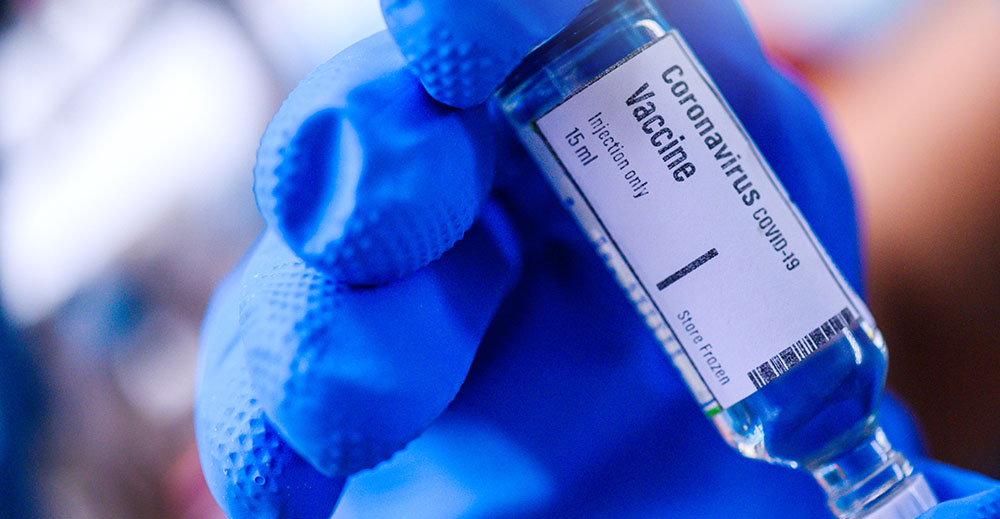The year 2020 has been defined by a particle more than 3,000 times smaller than a dust mite: the Coronavirus. The stress induced by the current pandemic has fluctuated relentlessly, as individuals across the world have had to adapt to new and difficult circumstances. Now, finally, multiple vaccines for COVID-19 are going through all of the proper steps required by the Centers for Disease Control and Prevention (CDC) and the Food and Drug Administration (FDA) to prove their safety.
As early as 1000 A.D., vaccines have been safely used to eliminate or prevent diseases and infections. Modern medicine has only heightened the research, safety, and effectiveness of vaccines. For example, in the pre-vaccine era, measles resulted in more than 2.6 million deaths worldwide each year. Since the development of a vaccine, the annual deaths due to the measles is approximately 142,000 deaths worldwide, as of 2018. That’s a 73% decrease in deaths, thanks to vaccinations.
How do vaccines work?
A vaccine is a type of medicine that protects you from infectious diseases by introducing your body’s immune system to a virus or bacteria in a safe way. Vaccines introduce an inactive form of a microbe into your body. This allows your immune system to make antibodies that are specific to virus or bacteria. Vaccines help your body develop immunity to a virus without having to get the illness. Vaccines do not cause the disease or illness they are protecting you from. Different types of vaccines work in different ways to offer protection. All vaccines leave your body a supply of “memory” T-lymphocytes and B-lymphocytes that recognize and remember how to fight that virus in the future.
Having a safe COVID-19 vaccine is a crucial step to saving lives, fueling economic recovery, and restoring community life in the process.
So why is a vaccine necessary?
When enough people are protected from the virus, everyone is safer, even if some people are unable to get vaccinated. Herd immunity is a term we use to describe when a virus or bacteria is unlikely to spread and cause disease because enough people have protection from it. There are two ways you can be protected from a virus or bacteria:
- You have natural immunity from being infected before.
- You have immunity because you were vaccinated.
Vaccination is the safest and most effective way for someone to be protected from COVID-19. It’s also the safest way to protect our communities. Over time, the entire community can be protected because the chance of an outbreak gets smaller and smaller as more people are vaccinated and unable to spread the virus that causes COVID-19. People who may be unable to receive the vaccine particularly rely on herd immunity to protect them from infections and diseases.
The herd immunity threshold is the number of people who need to be immune to a disease to prevent a widespread outbreak. The more contagious the disease, the higher the threshold. For example, measles has a herd immunity threshold of 95%, because it is so contagious. This means 95% of a population needs to be immune to measles to reach herd immunity. Although this number is not yet known for COVID-19, most infections require an 80% – 95% herd immunity threshold. It is unsafe and would have devastating impact on lives and the economy to rely on natural herd immunity. A vaccine is the safest way to get us to a better tomorrow sooner.
Because vaccine doses will be limited at first, it is important that those who are able to vaccinate, do so. Until everyone has access to a vaccine, we must continue to wear masks, physical distance, wash our hands frequently, and stay home when we have symptoms of COVID-19 in order to further prevent the spread of COVID-19.
For more information on the COVID-19 vaccine in Utah, visit https://coronavirus.utah.gov/vaccine.
Sources:
- www.news-medical.net/health/The-Size-of-SARS-CoV-2-Compared-to-Other-Things.aspx
- www.youtube.com/watch?v=R4sk6CwmdIA
- learn.genetics.utah.edu/content/science/viruses/
- www.historyofvaccines.org/timeline/all
- www.vaccines.com/
- www.immunize.org/catg.d/p4037.pdf
- www.who.int/news-room/fact-sheets/detail/measles
- coronavirus-download.utah.gov/Health/Coronavirus_Vaccine_FAQ.pdf

